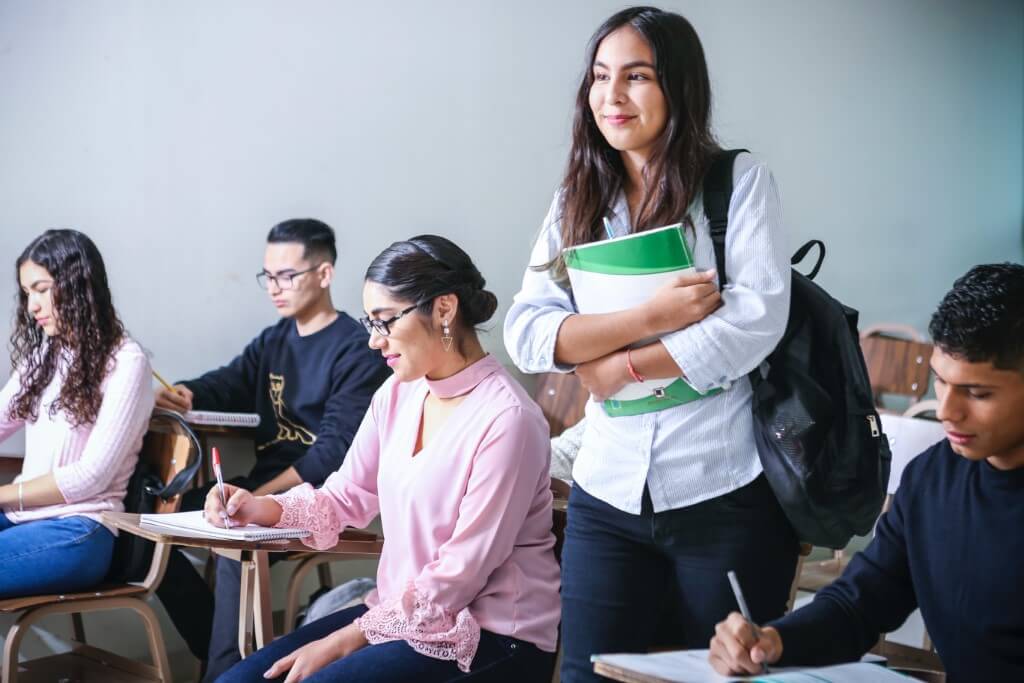Education, as you know it, is rapidly evolving. The familiar classroom scene of chalk, blackboards, and rows of desks is transforming before our very eyes. But what exactly is ushering in this change? Let’s explore the groundbreaking trends and innovations that are reshaping how you and others around the world learn.
Digital Classrooms and Online Learning Platforms
You might have already experienced it. Platforms like Coursera, Udemy, and Khan Academy offer courses on almost everything. These platforms are not just supplements; for many, they are the primary mode of education. As internet connectivity spreads, expect these platforms to be as common as traditional textbooks.
Virtual Reality (VR) and Augmented Reality (AR) in Learning
Imagine walking through ancient Rome or witnessing a live dissection without leaving your room. VR and AR make it possible. These technologies can give you immersive experiences, making learning more interactive and memorable.
Personalized Learning with Artificial Intelligence (AI)
Everyone learns differently. Recognizing this, AI tools are being developed to understand your unique learning style and pace. Soon, your learning materials might adjust in real-time based on your progress and understanding.
Gamification: Making Learning Fun
Who said learning can’t be as engaging as your favorite game? Gamification introduces game elements in educational scenarios. From earning points for solving math problems to unlocking levels after a reading assignment, this trend might make you look forward to your next study session.
Lifelong Learning and Micro-Credentials
Gone are the days when education was limited to early life. With the ever-evolving job market and the changing dynamics of the global economy, continuous learning has become the need of the hour. Platforms offering short courses, or ‘micro-credentials’, allow you to stay updated and relevant in your field.
Emphasis on Soft Skills
It’s not just about the hard facts anymore. Schools and institutions are integrating soft skills like critical thinking, communication, and emotional intelligence into their curriculum. After all, these are the skills that will allow you to navigate the complexities of the modern world.
Decentralized and Community-based Learning
Learning is no longer confined to institutions. Communities, both online and offline, are becoming pivotal in knowledge sharing. So, next time you’re looking to learn something new, remember, your local community or an online group might be the place to start.
Environmental and Sustainability Education
With the growing concerns around climate change and sustainability, it’s no surprise that these topics are making their way into curriculums. The idea is to prepare you and the next generation to make informed decisions for a sustainable future.
The Integration of Indigenous Knowledge
Especially relevant to regions like South Africa, there’s a growing emphasis on integrating indigenous knowledge and practices into mainstream education. It’s about time that the wisdom of centuries finds its rightful place in our learning.
For those of you eager to stay at the forefront of educational advancements, these are thrilling times. With the fusion of technology, innovative methodologies, and a global perspective, the future of education promises to be more inclusive, engaging, and dynamic than ever before.
Tomorrow’s Classrooms
Education is not what it used to be, and thank heavens for that! The ever-accelerating pace of technological advancement is reshaping our classrooms, offering tools and experiences that were once the stuff of science fiction. Let’s embark on an enlightening exploration of what the future holds for education, especially in a digitally integrated landscape.
The Sound of Learning: Voice Platforms
In an era where smart assistants like Siri and Alexa have become household names, voice platforms are emerging as potent educational tools. From language learning to accessibility for differently-abled learners, the potential is enormous.
App Innovation and the Role of Gamification
Learning is breaking free from its traditional constraints, thanks to innovative educational apps. These apps not only make learning materials more accessible but also more engaging. Through gamification, complex subjects are broken down into enjoyable challenges, making learning feel less like a chore and more like an intriguing game.
The New Age of Literacy: Digital Education
The three R’s (Reading, Writing, Arithmetic) have a new companion: Digital Literacy. As our world becomes increasingly digitized, the ability to navigate, understand, and create digital content becomes crucial. Schools are now focusing on equipping students with these skills, ensuring they’re ready for the modern world.
The Evolution of Libraries: Meet the Media Specialists
Gone are the days when libraries were silent rooms filled with books. Modern libraries are bustling hubs of digital resources with media specialists ready to guide learners through a vast array of digital tools and resources.
Taking Charge: Self-directed Professional Development
Education isn’t just for the young. Professionals are now taking charge of their learning journeys, seeking out opportunities to upskill or reskill as the job market evolves. The emphasis is on personalized, self-directed learning, using a mix of online courses, webinars, and virtual workshops.
Teamwork in the Digital Age: Collaborative Learning
The digital realm is also revolutionizing the way students collaborate. Online platforms enable real-time collaboration, transcending geographical boundaries. This global perspective is especially valuable for South African students, offering them a window into diverse viewpoints and cultures.
Making Learning Tailored and Engaging
With technology, education is becoming more tailored to individual learner’s needs. Digital simulations provide realistic representations of concepts, making them easier to grasp. Furthermore, learners can progress at their own pace, ensuring a solid understanding before moving on. This personalization, combined with the engaging nature of digital resources, makes learning not just effective but also enjoyable.
The Global Classroom
With a wealth of resources available online, education is becoming more democratized. Open education resources ensure that quality learning materials are accessible to all, irrespective of their geographical location or financial status. For South Africans, this can be a game-changer, bridging educational gaps and offering world-class resources to all.
- Augmented Reality (AR) and Virtual Reality (VR) in Education: The global AR and VR in the education market is expected to reach USD 12.6 billion by 2025, growing at a compound annual growth rate (CAGR) of 59.3% during the forecast period (2020-2025). In South Africa, with initiatives such as the Virtual Reality Learning Lab at Stellenbosch University, students and educators are exploring the integration of VR into curriculum, reflecting its growing importance in the regional education sector.
- Digital Literacy and Education: Globally, 65% of primary school children will work in roles that don’t yet exist, highlighting the necessity for digital literacy from a young age. In South Africa, the Department of Basic Education has already integrated a digital skills curriculum into schools, aiming to equip the nation’s youth with vital 21st-century skills.
- Professional Development and E-learning: The e-learning market worldwide is forecasted to surpass $243 billion by 2022. South Africa has seen a surge in e-learning platforms, such as FutureLearn and GetSmarter, indicating a growing demand for online professional development and education courses.
- Collaborative Learning Platforms: The global collaborative learning market is projected to grow at a CAGR of over 11% by 2023. South African universities, such as the University of Cape Town, have been early adopters, promoting tools like Vula, an online collaborative platform that promotes student and faculty engagement both inside and outside of the classroom.
- Open Education and Online Resources: A study shows that 45% of students globally have taken an online course, highlighting the growing acceptance and relevance of open education. For South Africa, open education initiatives such as the OpenUCT Initiative showcase the country’s commitment to making educational resources available to a broader audience, ensuring that education is more inclusive and equitable.
Feel the pulse of tomorrow’s classrooms today. If your curiosity about the future of education is kindled, and you’re eager to navigate the dynamic innovations shaping how we learn, we’re here for you. Together, let’s co-create the educational journey of the future. Connect with us directly on our contact page, and let’s discuss, address, and champion the transformative power of learning. Your insights could shape the next big educational revelation
Embarking on a transformative journey into the evolving world of education? The horizon is filled with innovative trends sculpting our learning experiences. As we navigate this transformative landscape, your insights and passions could be pivotal. If discussions on the future of education resonate with you, I invite you to delve deeper. Reach out directly via our contact form, and together, let’s shape and embrace the groundbreaking nuances of learning.




